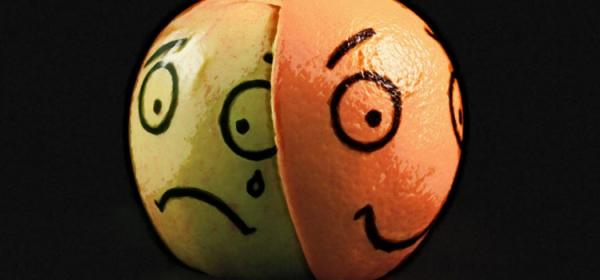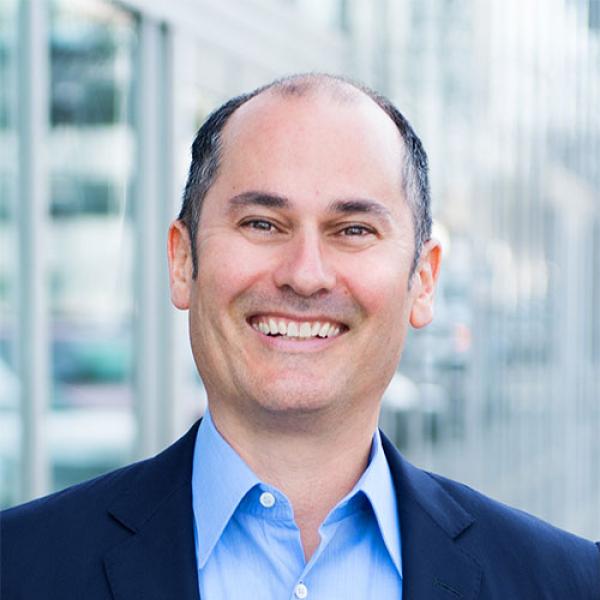
Anxiety and depression are common complaints in all functional medicine practices. If you're my age (54) you can remember when depression was relatively rare. Back in the pre-toxicity era when environmental toxin levels were still low, the human brain was a pretty good thing. It worked. People woke up, ate normal food, had jobs, relationships, of course they had stress, there were wars and famines throughout the world, but still, worldwide depression rates remained low. So what happened?
Beginning in the 1940's we started to, on a relatively massive scale, dump chemicals and heavy metals into our surroundings. Weapons manufacturing from World War II launched a chemical production industry that turned during peacetime into production of pesticides, herbicides, and a whole era of “better living through chemistry” where “Tang” replaced orange juice and trans fats like margarine replaced butter. Decades later this onslaught continued, Rachel Carson wrote about it when I was a little kid in Silent Spring but no one really tried to change the trajectory of anything, onward with the manufacturing of plastics, the explosion of automobile exhaust levels, the cumulative impact of burning a whole lot of coal. All this added up and by the late 1980's there were enough people becoming sick from chemicals and heavy metals that a whole new approach to dealing with health was developed: functional medicine. Environmental medicine, detoxification clinics and programs, suddenly a new industry popped up to treat the effects of the chemical and manufacturing practices of the post WW II era.
Conventional medicine then, and still now, lacked interest in or understanding of the health impact of this ever increasing toxin burden on the human body and brain. Sadly, much of conventional medicine that has during this same time period become overly focused on over use of medication created an even larger detoxification problem for chronically ill patients that suffer from these issues. You might be saying, “Well, I feel fine. Why hasn’t everyone fallen into depression or lurched into anxiety states if toxic load levels are the underlying cause?”
Well it's a simple and now extremely well documented situation. Some people have weak detoxification systems due to genetic defects often referred to as SNPS or more formally known as single nucleotide polymorphisms. This is science-speak for your inherited messed up genes and when your body is exposed to a toxin like mercury or lead, you can't clear it as easily as the next person so it builds up in your system and creates mental health havoc. Functional medicine testing for depression can reveal one's toxic load and determine if this is a factor in depression, anxiety and OCD.
Anxiety and depression at their root can of course be purely psychological. If you had a mentally ill or alcoholic parent that yelled at you daily as a child or if you've suffered from physical or sexual abuse in childhood of course there can be mental health repercussions from that. And some, but I suspect a very few, of us are born into healthy family situations but still for reasons we don't understand fall prey to depression or anxiety just sort of randomly. The vast majority of cases of depression and anxiety I have seen in my own practice and in those of my colleagues are due to relatively simple biochemical issues.
Functional medicine testing for depression is a way to bring science to bear on a very hard to treat condition. The brain requires essential fatty acids both omega 3 (fish oil) and omega 6 (plant oil) which make up a large portion of the brain. We can easily test for these polyunsaturated fats and if they are low simply replacing what is missing clears a lot of cognitive problems up in a matter of months. If you are NOT low in omega 3's or omega 6’s and you take them for a long time this can be potentially harmful if your dosage is too high so be careful with these types of supplements. Always run a lab prior to starting to take them.
Similarly I see literally every day in my practice people low in amino acids like tyrosine and tryptophan which will inevitably lead to low dopamine, epinephrine and serotonin levels as well as low thyroid hormone production. Low tyrosine is at the root of much OCD and anxiety as the body's levels of adrenaline (also known as epinephrine) deplete from chronic stress physiology. This too can be corrected with supplements and the improvement in mood typically happens within a few days of starting the proper dose. Again, if you don't need tyrosine and you take it you can throw off your brain chemicals so these supplements are only recommended based on lab work. Functional medicine and OCD aren't always thought of as being linked however we find many OCD patients low in tyrosine and responding quickly to amino acid therapy treatments. When we are under stress we make large amounts of adrenaline, which in turn is produced from tyrosine. Stress functional medicine assessments also include measuring hormones like cortisol which can also play a strong role in depression and anxiety.
Additional reasons for anxiety and depression include dysfunction of the hormone system. Adrenal hormone regulation by the HPA axis can be thrown off by intense stress like being deployed in a war zone or going through a contentious divorce. If you experience enough intense stress for long enough anxiety and depression can occur. We also see low estrogen, low testosterone, low progesterone and low thyroid hormone levels contributing. However, in my practice at least it's more often related to the brain than to hormone producing glands like the ovaries, testes, thyroid or adrenals. This may vary depending on what patient population we are talking about, for example veterans from the middle east wars over the last 20 years might have higher rates of stress hormone related depression than non-veterans.
Some depression is overtly simple. Low vitamin D levels can cause it. Talk about easy to fix! A simple blood test and boom, take your vitamin D for a few months and you'll feel better. Some anxiety is even more simple, like extra venti simple. For some people the anxiety and even accompanying panic attacks vanish with the complete cessation of caffeine. There is no lab test for that. You don't even need to pay a doctor to figure that one out. Just stop all caffeine for a few months and see what happens.
Some anxiety and depression have their root cause in our current life situation which is similar to the idea of anxiety and depression coming from past traumatic events. I had a patient years ago whose husband was an alcoholic and carried loaded guns with him when he drove their kids to school. One time he passed out in the car while driving. That should cause anxiety for any normal spouse. I've had patients who were depressed after over a decade of caring for a spouse with cognitive decline. Again, that is an "understandable" depression. When you have depression rates on the increase, as you see now, and they are on the increase worldwide, it's not just situational issues or our past catching up with us, it's a whole planet issue.
We can see environmental change in the outside world, for example, a new parking lot where a bunch of trees used to be, but we can't see the toxins that impact our inside world and brain so dramatically. They remain hidden to us unless we do some functional medicine lab testing. I have a straightforward list of functional medicine testing you can ask your provider to do for an initial assessment and they include a salivary adrenal hormone profile, testing for amino acid and fatty acid levels, vitamin d, and organic acids. Also, be sure to do an analysis of your microbiome because it's common to see a gut/brain connection where a digestive problem triggers inflammation that ultimately impacts your brain through what we call the kynurenate pathway. All of these functional medicine tests are easily available and affordable especially when considered against the alternative which is either suffering for a long time or taking medications that may or may not help. I'm not against the use of anti-depressants or anti-anxiety medications at all. I believe they are valuable and potentially life saving. How could anyone be against anything that saves lives? However, the current way they are used is highly irresponsible. They should be a last resort emergency response only and only used for those in true and desperate states of anxiety and depression where all other lab based treatments have failed. Functional medicine testing for anxiety and depression is us using SCIENCE and BIOCHEMISTRY to FIX THINGS. It’s not voodoo, it’s not quackery, it’s not pseudo-science. It’s basic physiology and biochemistry and anyone that can’t see that never paid attention in school.
Using antidepressant medications and anti-anxiety drugs as the first line of treatment would be like calling an ambulance unnecessarily. If you have a headache, you probably wouldn't call an ambulance. You'd try to treat it simply first with aspirin or Tylenol. You'd try to associate the headache with something, is your period about to come, did you drink too much tequila the night before, are you dehydrated? Once you really thought through the whole process and development of the headache you probably still wouldn't call an ambulance, you'd probably try some other means of finding treatments that weren't so drastic as going to the emergency room, like seeking out a chiropractor, a massage, maybe a divorce. Eventually only if the headache was extremely painful would you rush to the hospital because guess what, it could be a stroke or tumor or something requiring urgent medical care. But that ER visit would be a last resort and saved for only the worst headache of your life. That is the exact same process we should be applying to the use of these powerful and amazing (for good and for bad) anti-depressant and anti-anxiety drugs now so readily available.

